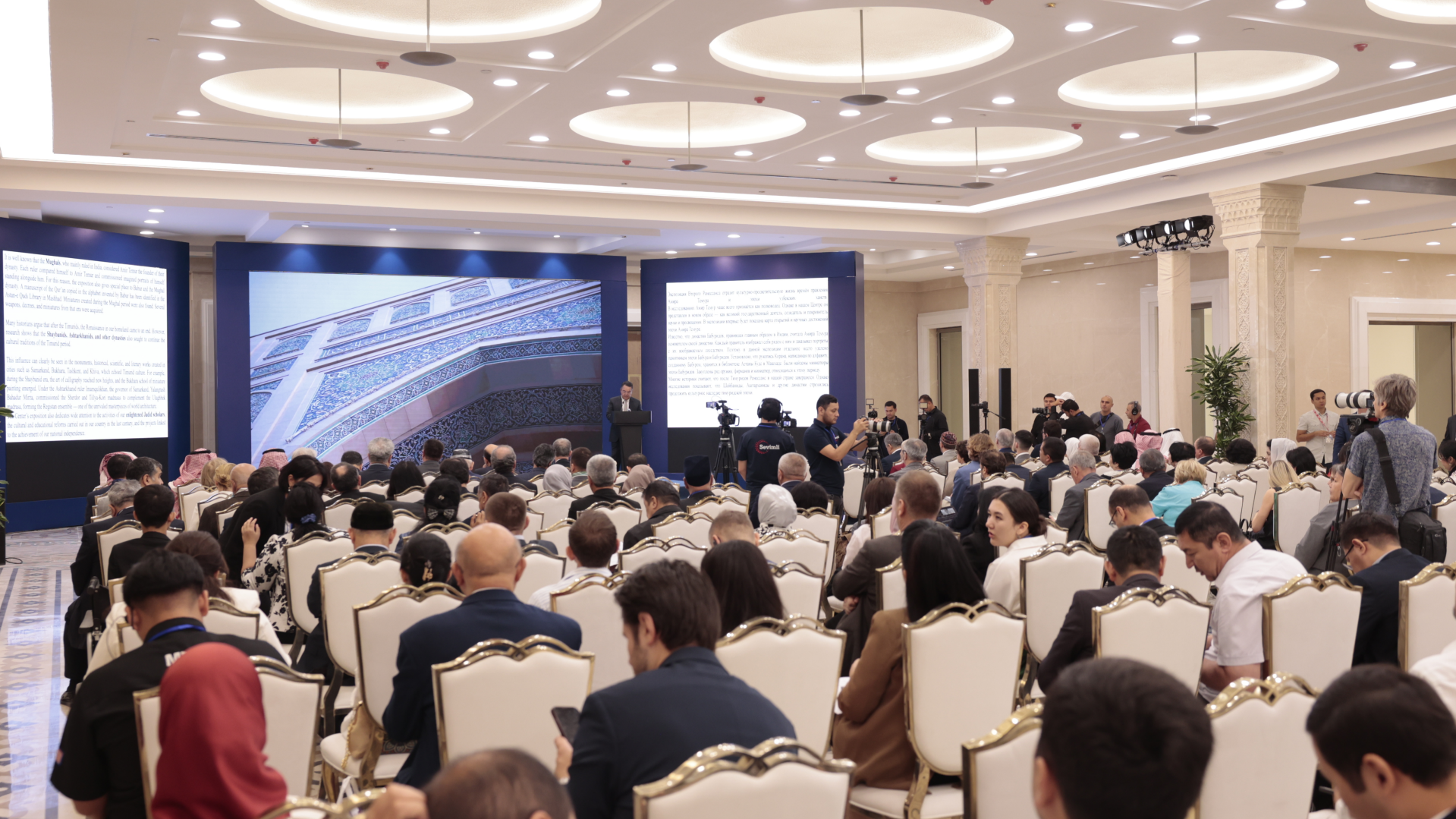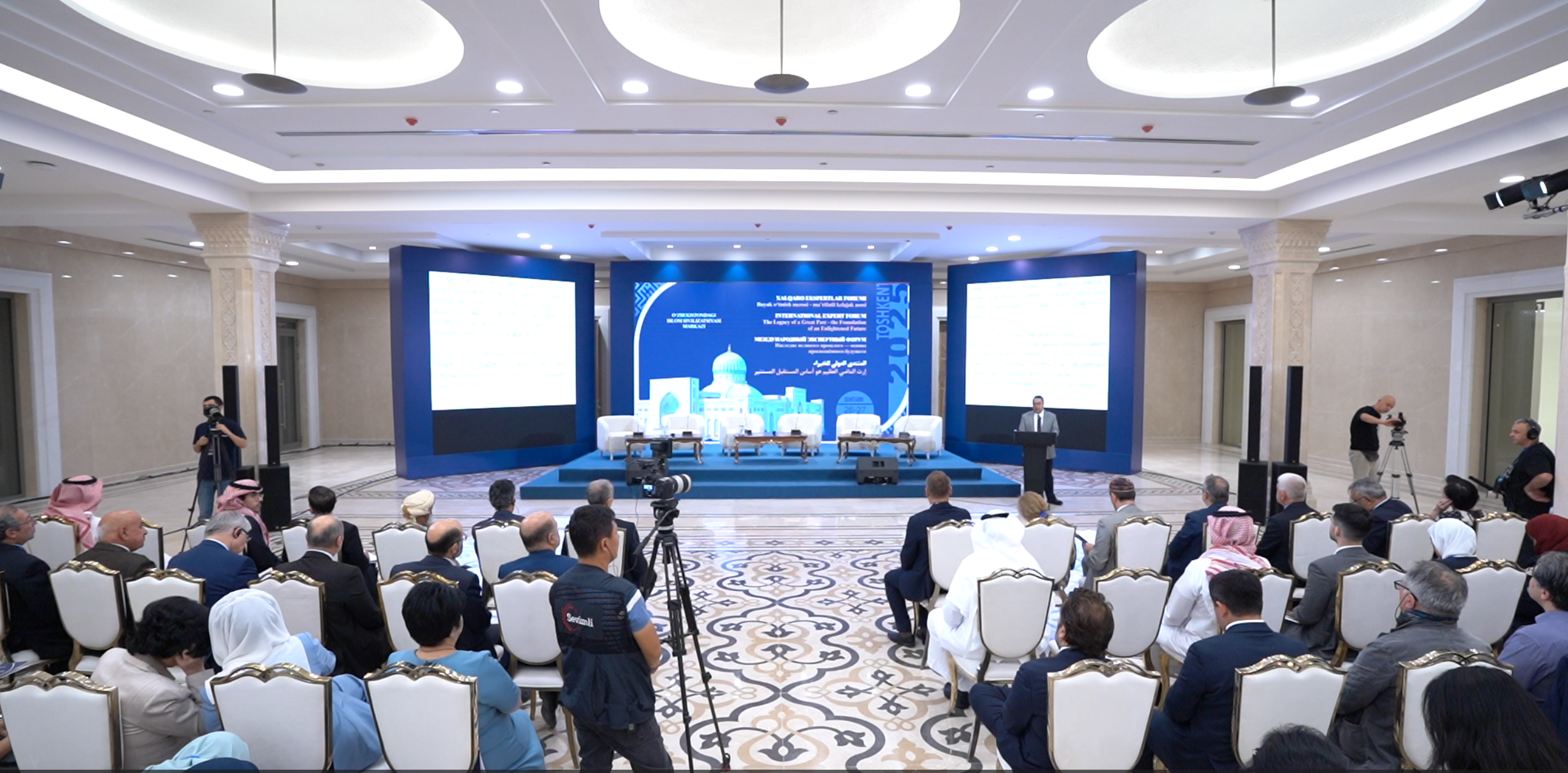The maqom of Jorulloh — a lofty peak of knowledge and spirituality
 Among the great thinkers who left a deep mark on the history of Islamic civilization, Mahmud al-Zamakhshari holds a special place. Throughout his life, he regarded knowledge and learning as the meaning of existence, and in the Muslim world he is respectfully remembered by the title “Jarullah” meaning “Neighbor of Allah”. This honorific was not accidental, but given because he spent a period of his life near the Kaaba in Mecca, devoted to the pursuit of knowledge and the writing of scholarly works.
Among the great thinkers who left a deep mark on the history of Islamic civilization, Mahmud al-Zamakhshari holds a special place. Throughout his life, he regarded knowledge and learning as the meaning of existence, and in the Muslim world he is respectfully remembered by the title “Jarullah” meaning “Neighbor of Allah”. This honorific was not accidental, but given because he spent a period of his life near the Kaaba in Mecca, devoted to the pursuit of knowledge and the writing of scholarly works.
Mahmud al-Zamakhshari’s full name was Abu’l-Qasim Mahmud ibn ‘Umar al-Zamakhshari. He was born in the village of Zamakhshar in Khwarezm on the 27th of Rajab, 467 AH (March 19, 1075 CE). Raised in a family that lived by knowledge and piety, from an early age he stood out for his intelligence and diligence. His father, a mosque imam devoted to Qur’an recitation and worship, raised his son in the spirit of religious and moral education.
In his youth, Mahmud suffered a severe trial an illness left him with a permanent limp. This physical impairment did not lead him to despair; on the contrary, it spurred him to immerse himself even more deeply in study. Unable to perform heavy labor, his father enrolled him in a madrasa, where his thirst for knowledge grew even stronger. He mastered Arabic language and literature, calligraphy, and the religious sciences.
Many renowned teachers contributed to his intellectual formation. He studied language and literature under Abu Mudar ibn Jarir al-Dabbi al-Isfahani; in Baghdad he learned hadith from eminent scholars such as Shaykh al-Islam Abu Mansur Nasr al-Kharisi, Abu Sa’d al-Shaqqani, and Abu Khattab ibn Abu’l-Batar. While living in Mecca, he was a student of Abu Bakr ‘Abdullah ibn Talhat al-Yabiri al-Andalusi and Shaykh al-Sadid al-Khayyati, gaining deep knowledge in grammar and jurisprudence. In lexicography, he learned from the eminent Abu Mansur Mawhub ibn al-Khaddar al-Jawaliqi.
Zamakhshari spent five years in Mecca. During this period, he produced many of his works and, because of his scholarly activity there, earned in the Muslim world the lofty title “Jarullah” - Neighbor of Allah. He trained many students along the path of knowledge, and learners from Khwarezm and other cities of the East benefited from his teaching.
Despite many hardships in life, Mahmud al-Zamakhshari never married, dedicating his entire life to scholarship. He passed away in Khwarezm on the Day of ‘Arafat, 538 AH (April 14, 1144 CE), leaving behind a rich intellectual and spiritual legacy.
Scholarly legacy and works
Mahmud al-Zamakhshari was a multifaceted author, producing more than 50 works on Arabic grammar, lexicography, literature, geography, tafsir, hadith, and jurisprudence. His works became famous not only in the East but also in the West.
Arabic language studies
In developing the theoretical foundations of Arabic, his work al-Mufassal occupies a special place. This grammar manual systematically and comprehensively set out the principles of Arabic syntax and was highly valued by scholars. As they put it:
“Had it not been for this Turk (Zamakhshari), the Arabs would have forgotten the grammar of their own language”.
His Muqaddimat al-Adab is also of great significance in the field of lexicography.
Rhetoric and eloquence
His Asas al-Balagha is one of the primary sources for the study of eloquence and rhetorical style, serving in its time to refine speech culture and literary expression.
Ethics and instruction
His Atwaq al-Dhahab fi’l-Mawa‘iz wa’l-Khutab is devoted to moral instruction and ethical advice, while Rabi’ al-Abrar wa Nusus al-Akhbar is a literary work rich in historical and spiritual material.
Tafsir
His most famous and extensive work is the Qur’anic commentary al-Kashshaf ‘an Haqa’iq al-Tanzil wa ‘Uyun al-Aqawil fi Wujuh al-Ta’wil. This tafsir is distinguished by its unique exegetical approach, mastery of language, and scholarly depth. Despite its complex style, it remains to this day one of the main study texts for students at prestigious institutions, including al-Azhar University in Cairo.

Mahmud al-Zamakhshari was not only a towering scholar of his time but also a figure whose influence on the intellectual and spiritual life of later centuries was immense. His profound knowledge, keen intellect, and devotion to learning earned him titles such as “Master of Arabs and non-Arabs” and “Pride of Khwarezm”. His legacy is still regarded as an invaluable treasure in the hands of scholars.
Today, in Uzbekistan especially at the Center of Islamic Civilization consistent work is being carried out to promote the heritage of such great scholars. In the Center’s exhibitions, special attention is given to the life and works of figures like Mahmud al-Zamakhshari.
Such noble initiatives are an important step toward preserving our rich intellectual and spiritual heritage and passing it on to future generations. Zamakhshari’s legacy will continue to serve as an eternal beacon on this path.
Husan Tursunov
P/S: The article may be used provided that the official website of the Center is cited.
Most read

Over 100 experts from more than 20 countries of the world are in Tashkent!

President of Serbia Aleksandar Vučić visited the Islamic Civilization Center in Uzbekistan

The Center for Islamic Civilization – a global platform leading towards enlightenment











